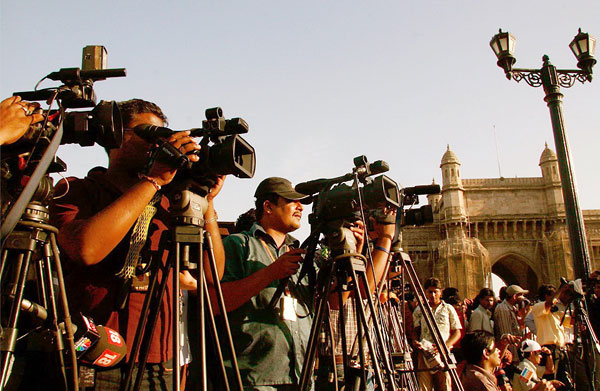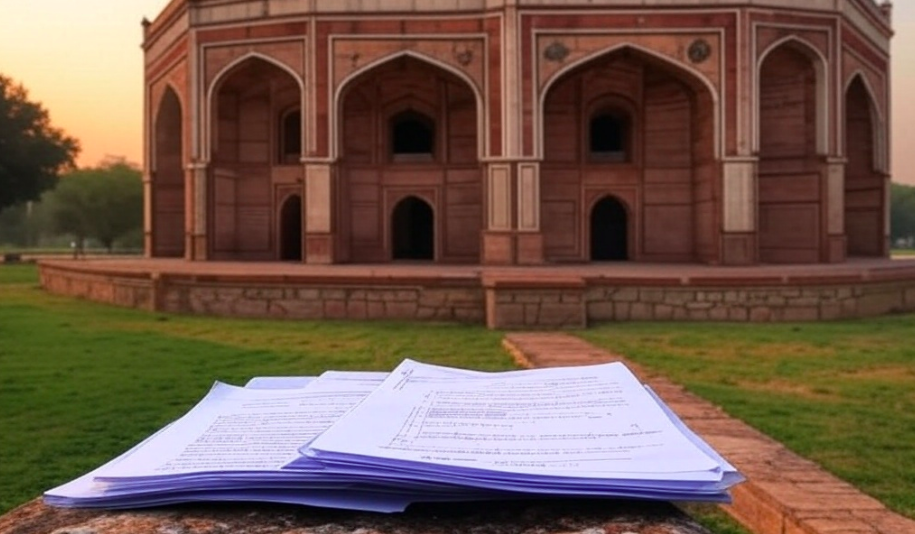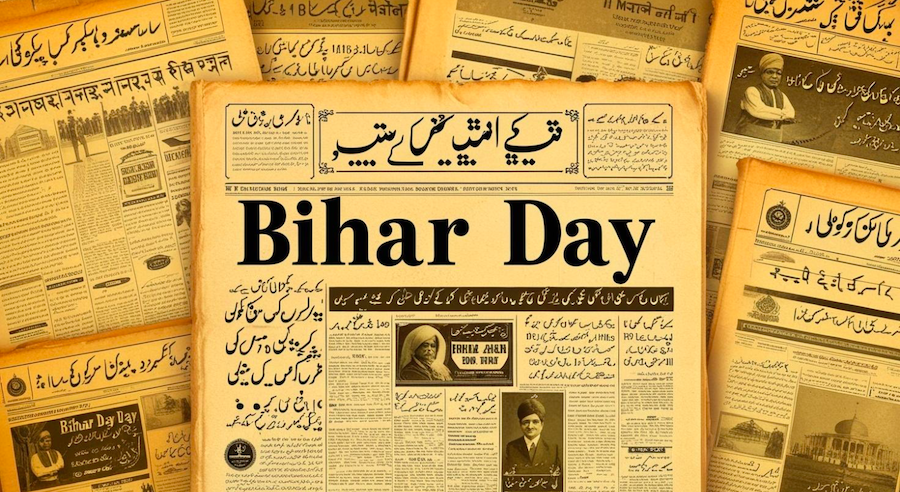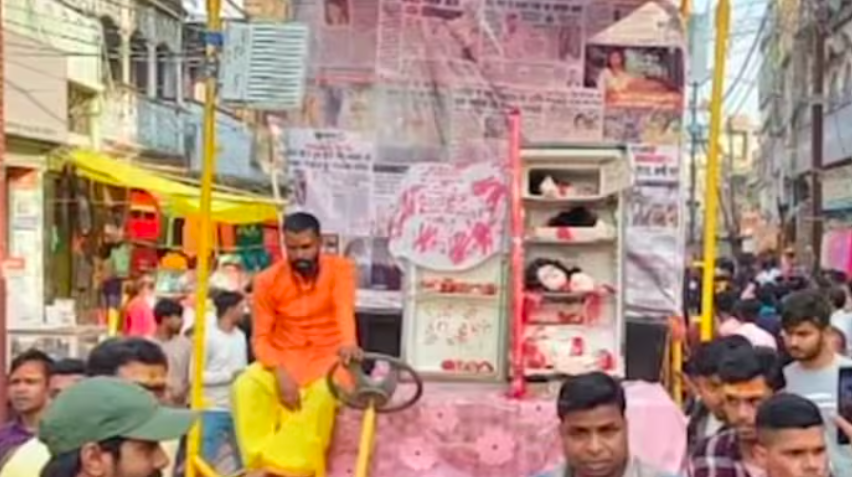Pramod Kumar for BeyondHeadlines
The belief is that the information not only empowers citizens but also leads to greater transparency and efficiency in the working of various institutions in a functioning democracy. The media and the recently enacted Right to Information (RTI) are two very good sources for empowerment of common people. The RTI is still in a nascent stage and has been successful, to some extent, in meeting common grievances of ordinary people, but it may be premature to evaluate its full impact on the democratic institutions.
However, it is evident that the changes taking place in the media are not all that wholesome. Apart from the slow “tabloidization” of news channels and hawking of the first page for lucre even by print media, the professional standards have degenerated somewhat during and after the Anna Hazare-led anti-corruption agitation. The other reason is perhaps the intense competition among the media organisations, both print and electronic. Then there are the competing interests/affiliations of different media groups.

However, the media`s uncritical support to the crusade against corruption and the abject attempts of the establishment to curb it instead of admitting the legitimacy of Anna`s cause, if not the manner of combating it and the success of the media in magnifying manifold its impact of, has generated some dangerous and unseemly ideas and tendencies among the controllers of the media. In keeping with the prevalent social and political milieu, one should not be oblivious to the fact that the media too is being afflicted with corruption and becoming a seeker and dispenser of favours.
In a democracy, the fourth pillar enjoys the right to free press and freedom of expression. As with any right, there are corresponding obligations and responsibilities too. The attempts to limit or curtail the free press have, no doubt, been made in the past but have failed because of the unstinting support of the ordinary people. The media has discarded the cardinal principle of the journalism that it should only be a critical, investigative, questioning, impartial observer and not a partisan in the political, social and economic activities. It is only a messenger and not a player. The anchors’ incessant badgering, hectoring of the politicians and the confused and ill-prepared presentation of facts and news muddy the situation further. Yet, the anchors and editors have become not only arrogant but, perhaps being keenly aware of the power they now wield, have also sought to play a bigger role in fashioning the future of the country without being accountable to the people. The tools they employ to achieve their objectives also are questionable. Apart from the usual tricks of trade like pulling and pushing a particular person/news, edited bytes and even the suppression of news, the two most abused words in this respect are “perception” and the “sources”. The freedom of expression, if not used judiciously, has the built in danger of leading to chaos and confusion.
The beleaguered Congress party-led United Progressive Alliance (UPA) has itself contributed a great deal to the problems it is now facing through self-inflicted wounds. It has been less than cohesive in explaining and then defending the telecom policy it has followed till 2008. It should have explained forcefully in the public debate that the policy issue and the irregularities in its implementation are two separate things. It should have demanded that the case is in the courts and the law should be allowed to settle it. Its decision with regard to the appointment of the chief vigilance commissioner (CVC) and the methods it employed to deal with agitations have revealed astounding ineptness and have earned it just opprobrium. The indications of two ministers squabbling too did not help the UPA.
Our anchors are not given to working or researching a subject well and are prone to push it on the basis of superficial knowledge or understanding by using the “perception” or “source” to hide their inadequacy. They had already polluted the public debate about the 2G scam by dropping the word “presumptive” from the alleged loss of revenue as calculated by the CAG. It did not seem that they were aware of or willing to understand the difference between a telecom policy formulated for achieving increased telephonic density and not for revenue.
The News TV allowed itself to be mesmerized by the figure of loss of Rs 1.76 lac crores to the exchequer. It clubbed together the policy and the implementation of the policy and created an atmosphere where such nuances were lost and kept on stoking the cynicism about the politics, politicians and even democratic functioning.
The News TV has done the same thing about the note, which was placed in the Supreme Court indicating that the then finance minister could have stalled the execution of the telecom policy if he had put his foot down. Since the note was prepared by the Finance Ministry and seen by the incumbent finance minister, the media jumped to the conclusion that the UPA is a riven entity and lacks cohesion.
In a democracy, the dissensions and difference of opinion are a given. It will be a misfortune if our functional democracy becomes regimented. The media too joined the bandwagon of opposition parties, which not only questioned the policy but also the integrity of the then finance minister. There is no way of confirming such impressions, but these impressions get amplified if the channels keep at it 24X7. The anchors kept on rubbishing any claims of there being no rift. They excelled not in appreciating nuances but also in asking loaded questions. Any answer was the grist to their mill for denouncing the polity, governance and painting a sorry picture of the country. In situations like these, the lynch-mob mentality is hard to miss.
The daily trials of the government in studios where a phalanx of retired bureaucrats and experts who have failed to get or have lost the sinecures they cornered after retirement (do they get appropriate honorarium for their efforts?) is always willing to supplement the efforts of the anchors to tear the three pillars of the democracy apart. No one is spared, be it politicians or the bureaucrat. The ambience has become so miasmic that those who are supposed to take decisions are afraid of taking them leading to a sort of paralysis of governance. Unfortunately, we are living in an era of leaks and negative constructs where not only the efficiency but the integrity is questionable scrutiny.
In such situations the very stability of a nation is at stake. Notwithstanding the many faux pas of the UPA, has the media even tried to explore the likelihood of forces like the corporate (unhappy with NAC) and the Rightists having become hyper-active under the Rashtriya Swayamsevak Sangh (RSS) coming together to derail it.
The media’s such actions are a great disservice to the country at a time when the economic situation worldwide is in doldrums and the nations must be ready to take swift action to meet the unforeseen challenges. Our anchors/editors should be less partisan, less sensational, not so full of their own importance and be more appreciative of the nuances, subtleties and responsibilities of decision making in a democracy. Ruling a country with its myriad problems is not easy, and it should be realized by all, including the media, political parties, crusaders and general people.
(Pramod Kumar retired from Glaxo and now lives in Goa from where he keeps an eagle eye on Media and can be reached at kumar.pramod1939@rediffmail.com)









